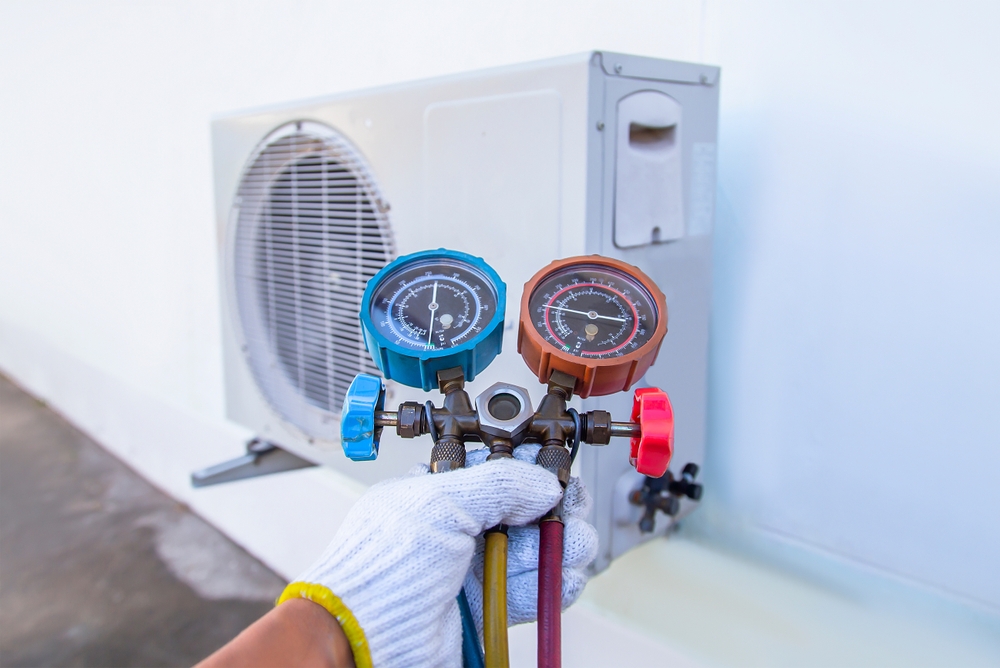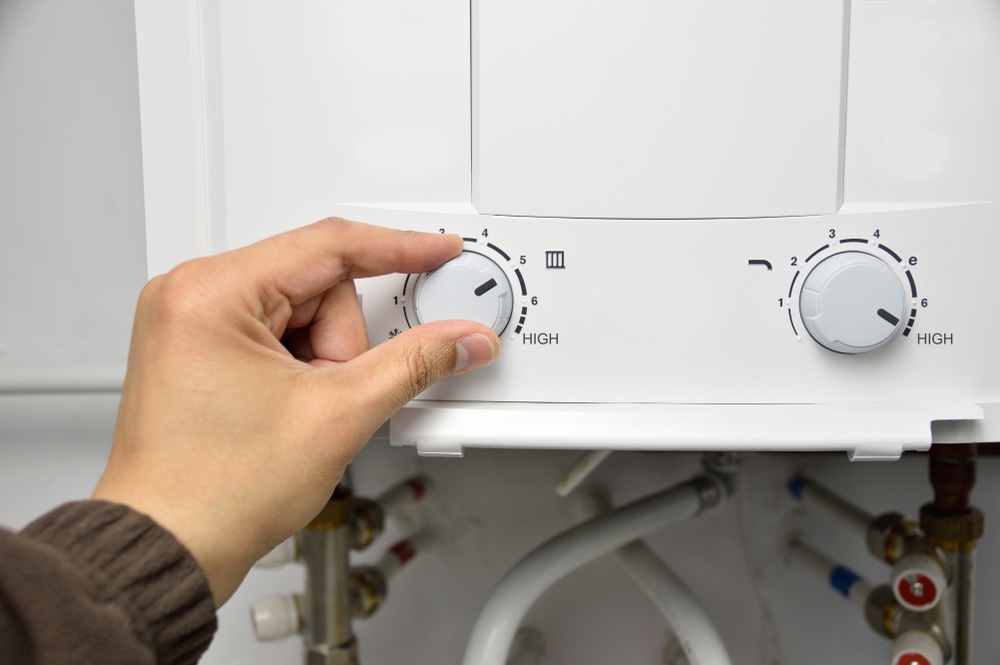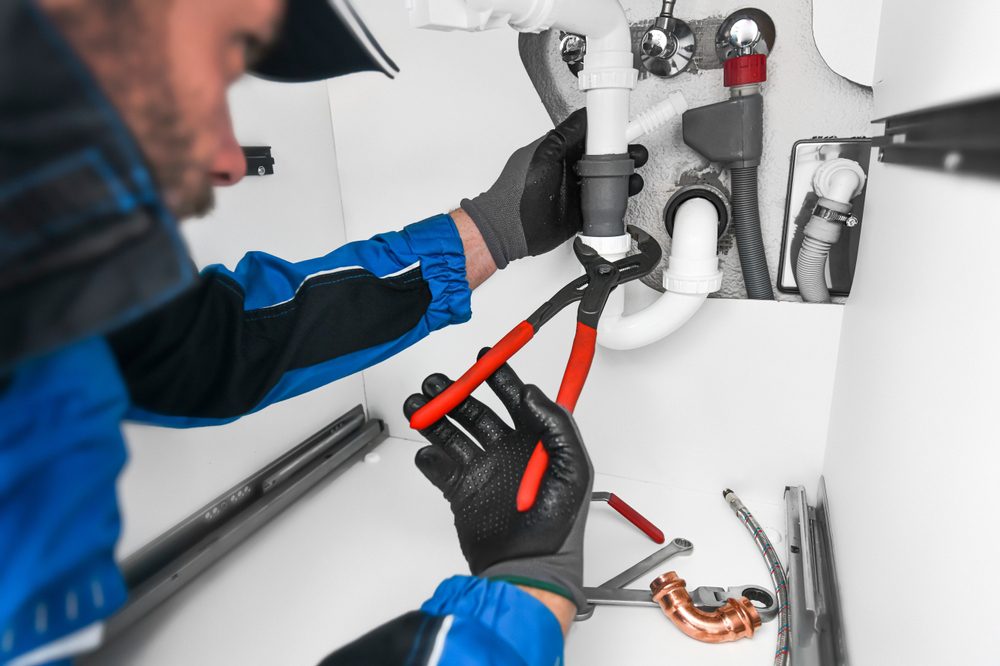Blog
Heat Pumps vs. Furnace: What’s the Difference?

When the subject of home heating systems comes up, homeowners typically choose between a heat pump or a furnace. It’s a crucial decision in Greenville, South Carolina, an area characterized by variable seasons and mild winters.
Several factors come into play when deciding between a heat pump and a gas furnace. Among them are energy costs, comfort preferences, and Greenville’s changing climate. Considering that cool mornings often give way to warm afternoons, having an energy-efficient solution is a must for residents, given its impact on comfort and long-term energy savings.
Choosing the right system is crucial for keeping home interiors comfortable while keeping monthly bills manageable. There are other pressing concerns in Downtown Greenville and the West End, where properties range from renovated lofts to historic single-family homes. In these communities, heating efficiency is just as important as system reliability.
Table of Contents
How Each System Works
Heat pumps and furnaces serve similar purposes in that they are both used to warm a home’s interior. But they differ in how they provide heating.
Furnaces
Furnaces generate heat directly, making them suitable for general heating requirements. In contrast, heat pumps transfer heat from one place to another, making them better suited for controlled heating.
Heat Pumps
Heat pumps are better suited for older craftsman-style and mid-century homes, such as those typically found in the North Main area or along Augusta Road. Many of these homes have limited insulation and variable room layouts, making it necessary to invest in efficient, year-round systems that strike a balance between comfort and energy efficiency.
How a Heat Pump Works
A heat pump transfers heat rather than generating it directly. During winter, it extracts warmth from outdoor air and circulates it indoors. Interestingly, this method remains effective even when temperatures drop.
In the summer, the process is reversed. Cold air from outside is drawn into the home and circulated throughout the interior. As you may have guessed, this allows heat pumps to cool a home just as an air conditioner would. This makes it a versatile option for Greenville’s mild winters and humid summers.
One of the main advantages of heat pumps is that they provide consistent comfort without relying on combustion-based heating. For homes in the Eastside, where efficient HVAC systems are commonplace, this dual capability makes electric heat pump systems the preferred choice.
How a Furnace Works
A furnace creates heat by burning natural gas or using electric heating elements. The air is circulated through a heat exchanger, after which it is distributed throughout the home via a duct system. This process can be particularly effective in the Upstate area, where short, intense cold snaps are frequent occurrences.
Traditional furnaces remain practical options for homeowners who require steady and reliable heating. In Downtown Greenville, where most older homes have existing ductwork and easy access to gas lines, gas furnaces remain viable options.
Key Differences Between Heat Pumps and Furnaces
While both systems keep homes warm, their core operations differ:
- Energy source: A heat pump relies solely on electricity. On the other hand, furnaces can be powered by gas or electricity
- Heating method: Heat pumps transfer heat from the air, while furnaces generate heat through combustion or electric resistance
- Functionality: Heat pumps can be used for both heating and cooling purposes. Furnaces are solely used for heating
Pros & Cons in Greenville’s Climate
Greenville’s weather is marked by hot and humid summers, with relatively mild winters. However, cold snaps have been known to occur. Given this unique and varied climate, it’s helpful to know the relative pros and cons of heat pumps and furnaces.
Pros of Heat Pumps:
- High efficiency translates to lower energy costs
- Can be used for both heating and cooling
- Better suited for moderate climates
Cons of Heat Pumps:
- May be less efficient when temperatures go below the freezing point
- Can be more costly to purchase and install
Pros of Furnaces:
- Provides strong and consistent heating, even during the occasional cold snaps
- Last longer than heat pumps
- Lower upfront cost
Cons of Furnaces:
- Constant fuel use translates to higher utility bills
- Limited to heating only
Cost and Efficiency
Energy efficiency is often the primary factor in determining whether to choose a heat pump or a furnace. All other factors being equal, electric heat pumps usually cost less to operate than gas furnaces. This is often the case in South Carolina, where electricity rates tend to hold steady throughout the year.
The milder winters in South Carolina—especially Upstate—also play a role. Due to the slightly reduced heating requirements, heating systems tend to operate efficiently without drawing excessive energy.
Installation is where costs can vary considerably. Furnaces are cheaper to install, so your initial outlay will be. However, the constant reliance on fuel means higher energy bills over time.
On the other hand, heat pumps will almost certainly be more expensive to install. But this often evens out in the end due to lower long-term operating costs. Furthermore, installing heat pumps usually makes you eligible for federal energy tax credits.
Lifespan
You can expect your furnace to last around 20 years with proper maintenance. Heat pumps typically last around 15 years on average, as most households use them throughout the year. As with furnaces, however, you can greatly increase your system’s lifespan with routine heat pump service calls from a qualified professional.
Size and Installation
Heat pumps and furnaces differ significantly in terms of design and space requirements. Heat pump systems typically consist of an outdoor condenser and an indoor air handler. As for furnaces, most are designed to connect to an interior ductwork system with a separate air conditioning unit used for cooling.
In the Eastside, where newer homes have smaller utility spaces, heat pumps are typically preferred. In older properties with existing venting and gas lines, furnaces remain a viable option.
Regardless of which option you choose, professional heating replacement and installation are advisable for optimal airflow and efficient performance. Consulting an expert heating repair service ensures safe and efficient operation regardless of your choice.
When to Choose a Heat Pump vs. Furnace in Greenville, SC
When choosing between a heat pump and a furnace, consider factors such as your lifestyle, home design, and long-term comfort preferences. Here’s a quick checklist to run through when shopping for a new heating system:
- Budget for installation and long-term operation
- Home size
- Existing insulation and ductwork
- Preferred energy source (gas vs. electric)
- Need for year-round climate control
Why Choose Corley Pros for All Your Heating Needs
From expert system assessments to full installations, Corley Pros offers dependable heating services throughout Greenville and the surrounding areas. We proudly service communities from Downtown to the West End, North Main, to Augusta Road, and the Eastside. We even cover the Upstate area, including suburban and rural neighborhoods in Greenville County.
Our team specializes in heat pumps, furnaces, and comprehensive heating repair backed by years of local experience. When you’re ready for heating replacement or an upgrade, Corley Pros can recommend the most efficient option for your home.
Frequently Asked Questions
For most Greenville homes, heat pumps are the preferred choice for mild winters. But for guaranteed protection against the occasional cold snaps, a traditional furnace might be the better option.
Heat pumps generally cost less to operate due to the stable electricity rates and relatively mild winters in South Carolina.
Older homes with less insulation usually benefit from the stronger heating provided by a furnace. But heat pumps are quite effective in newer homes with better insulation.
This is feasible in most cases. A professional HVAC technician can assess your ductwork, electrical system, and space requirements before installation.






